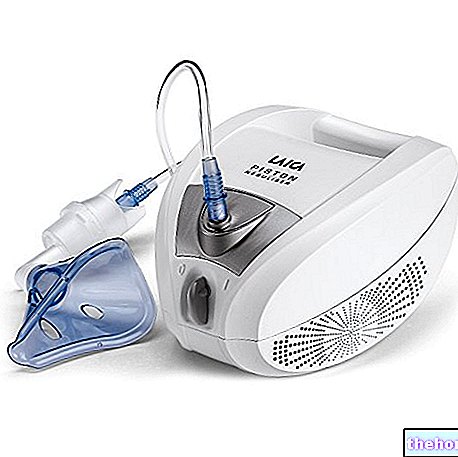Generality
The hysterical bolus - also called "lump in the throat" - is a clinical condition in which the patient perceives a sensation of a foreign body in the throat. This sensation can significantly affect the quality of life of the individual, as it can make swallowing difficult.

Causes
Generally, the hysterical bolus is perceived by the patient as the sensation of having a lump in the throat, even if there are no real pathological conditions to cause it.
Very often, the origin of the hysterical bolus lies in a psychological cause and represents the symptom of anxious and depressive disorders, since nothing is really blocking the throat.
In some cases, however, the sensation of a foreign body in the throat can be caused by dry mouth and frequent swallowing resulting from states of emotional stress, as can happen in case of anguish.
The exact causes of the onset of the hysterical bolus, therefore, are still unknown, but some authors state that the appearance of this disorder may be related to an "abnormal esophageal motility, or to a" high pressure in the upper esophageal sphincter.
In other cases, however, the hysterical bolus does not constitute a sensation of a purely psychological nature, but rather the symptom or clinical manifestation of other diseases. Among these pathologies, we remember: gastroesophageal reflux, esophageal spasms, esophageal achalasia, idiopathic dyskinesias, neuromuscular disorders (such as, for example, myasthenia gravis) and benign or malignant neoplasms of the pharynx and esophagus. However, in these cases, we prefer to speak of a hypopharyngeal bolus rather than a hysterical bolus.
Diagnosis
The diagnosis of the hysterical bolus is a fundamental tool to exclude the possible presence of other very serious pathologies, such as, for example, tumors of the esophagus and pharynx.
After a careful evaluation of the symptoms carried out through the interview with the patient, the doctor can perform the palpation of the neck and throat to check the presence or absence of swellings and / or nodules. In addition, the otolaryngologist usually analyzes the oropharyngeal tract through the use of special endoscopes, in order to identify the presence of any pathologies.
Symptoms
The hysterical bolus consists in the perception of a sense of obstruction in the throat, which seems to be caused by the presence of a foreign body. Often and willingly, this sensation is accompanied by an "intense concern on the part of the patient, who fears that the disorder may be triggered by serious pathologies. In reality, in most cases the problem is psychological and the intensity of the phenomenon tends to increase as the patient's own concern increases. Of course, this does not mean that the origin of the disorder must always be adequately investigated with medical support.
The main symptom related to the hysterical bolus is the difficulty in swallowing which, at times, could also be painful.
When to worry?
As mentioned, the hysterical bolus is a disorder that in most cases turns out to be related to the patient's anxious states or emotional stress. Nevertheless, it must not be treated superficially, especially when it manifests itself constantly over time.
It is advisable to consult a doctor immediately when symptoms occur, such as:
- Presence of a palpable and / or visible mass in the throat;
- Difficulty swallowing accompanied by pain and a feeling of choking;
- Sore throat and / or neck pain
- Anorexia;
- Loss of body weight;
- Gradual worsening of symptoms.
Treatment
Unfortunately, there is currently no drug that can counteract the hysterical bolus. The doctor's task, therefore, is to identify what is the triggering factor of the disorder and direct the patient towards treatment and symptom control.
In light of what has just been said, if for example the hysterical bolus is due to depressive, anxious or emotional stress conditions, the therapeutic strategy must be based on the treatment of these disorders.
In the event that the hysterical bolus is caused by severe states of anxiety and depression - in addition to targeted drug therapy with antidepressant and anxiolytic drugs - the doctor, if he deems it necessary, can advise the patient to also resort to psychotherapy.

.jpg)


























